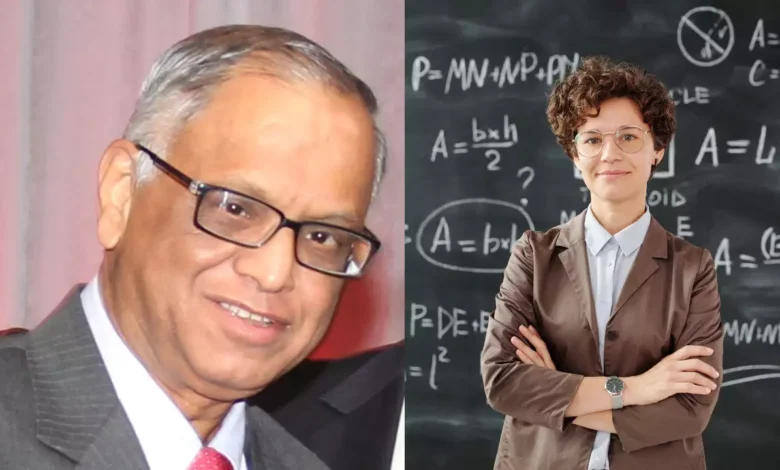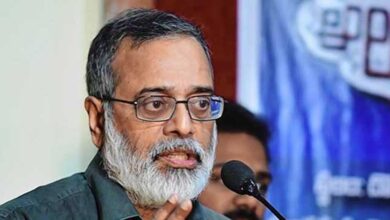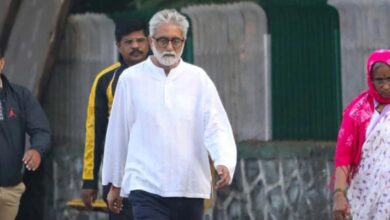Narayana Murthy recommends allocating $1 billion every year for training of school teachers in India
Ambitious Plan Calls for Highly Accomplished Retired Teachers, Improved Salaries, and a Cultural Shift to Propel India to Educational Excellence

N.R. Narayana Murthy, the visionary founder of Infosys, has put forth a compelling vision for the transformation of education in India. Central to his proposal is the call for a significant annual investment of $1 billion to train school teachers. This monumental effort aims to bring about a paradigm shift in the quality of education by leveraging the expertise of 10,000 retired, highly accomplished teachers from both developed nations and India. The focus of this intensive training program would be on STEM areas—Science, Technology, Engineering, and Mathematics.
According to Murthy, while the teacher training initiative is pivotal, it cannot stand alone. He stresses the need for a holistic approach, advocating for increased respect and improved salaries for teachers and researchers. Recognizing the pivotal role educators play as role models for the youth, Murthy emphasizes the importance of honoring their contributions. The Infosys Prize, instituted in 2009, stands as a testament to Infosys’s commitment to furthering the cause of research in India.
In alignment with India’s National Education Policy, Murthy proposes a concrete plan to expedite its outcomes. His suggestion involves inviting retired teachers—experts in STEM fields—from both developed nations and India to establish 2,500 “Train the Teacher” colleges across the country. This ambitious training program, spanning a year, aims to equip teachers with the necessary skills and knowledge to deliver high-quality education.
4. Financial Commitment and Justification: Murthy acknowledges the financial commitment required for such an extensive program, estimating an annual cost of $1 billion for a twenty-year duration. However, he argues that for a nation aspiring to reach a GDP of $5 trillion, this investment is justifiable. He invokes the words of Derek Bok, emphasizing that the cost of education pales in comparison to the potential consequences of ignorance.
When questioned about the feasibility and impact of the proposal, Murthy emphasizes the importance of expert evaluation. He expresses confidence in a panel of experts who will assess the recommendations for their merit and alignment with the nation’s betterment. This underscores the seriousness and thoughtful consideration behind the proposal, indicating that it is not merely a suggestion but a well-researched plan.
The Infosys Science Foundation, through its President and Board of Trustees, S. Gopalakrishnan, lends support to Murthy’s recommendations. Gopalakrishnan emphasizes the need for a shift in approach as India’s GDP grows, advocating for a departure from the status quo. He underscores the urgency of implementing the National Education Policy, making it clear that mere recommendations are insufficient without timely and effective execution.
Murthy provides a strategic overview of the four stages of the invention and innovation lifecycle of a nation. He acknowledges India’s success in several areas but identifies key domains where the country remains in stage one. Murthy’s call to move India to stage four in every sector affecting the lives of its citizens reflects a profound commitment to comprehensive progress.
Education and research, according to Murthy, are the cornerstones of a nation’s progress. Drawing examples from India’s successes in atomic energy, space exploration, and healthcare, he underscores the pivotal role of higher education institutions. Murthy advocates for an elevation in the quality of research and education to generate impactful ideas that can be swiftly translated into practical solutions.
Murthy places great emphasis on the culture of aspiration, curiosity, discipline, and hard work as essential elements for achieving excellence. He stresses the importance of adopting a mindset that respects and learns from better-performing cultures globally. In doing so, he lays the groundwork for a culture that fosters continuous improvement and innovation.
Murthy pitches for the enhancement of the quality of education across all levels. He advocates for institutions that embrace independent, critical, and analytical thinking. Murthy celebrates the initiation of this journey through the National Education Policy, expressing optimism about its potential to bring about positive change.
You might also be intersted in – Narayana Murthy slammed for advising youth to work 70 hours/week; called elitist



